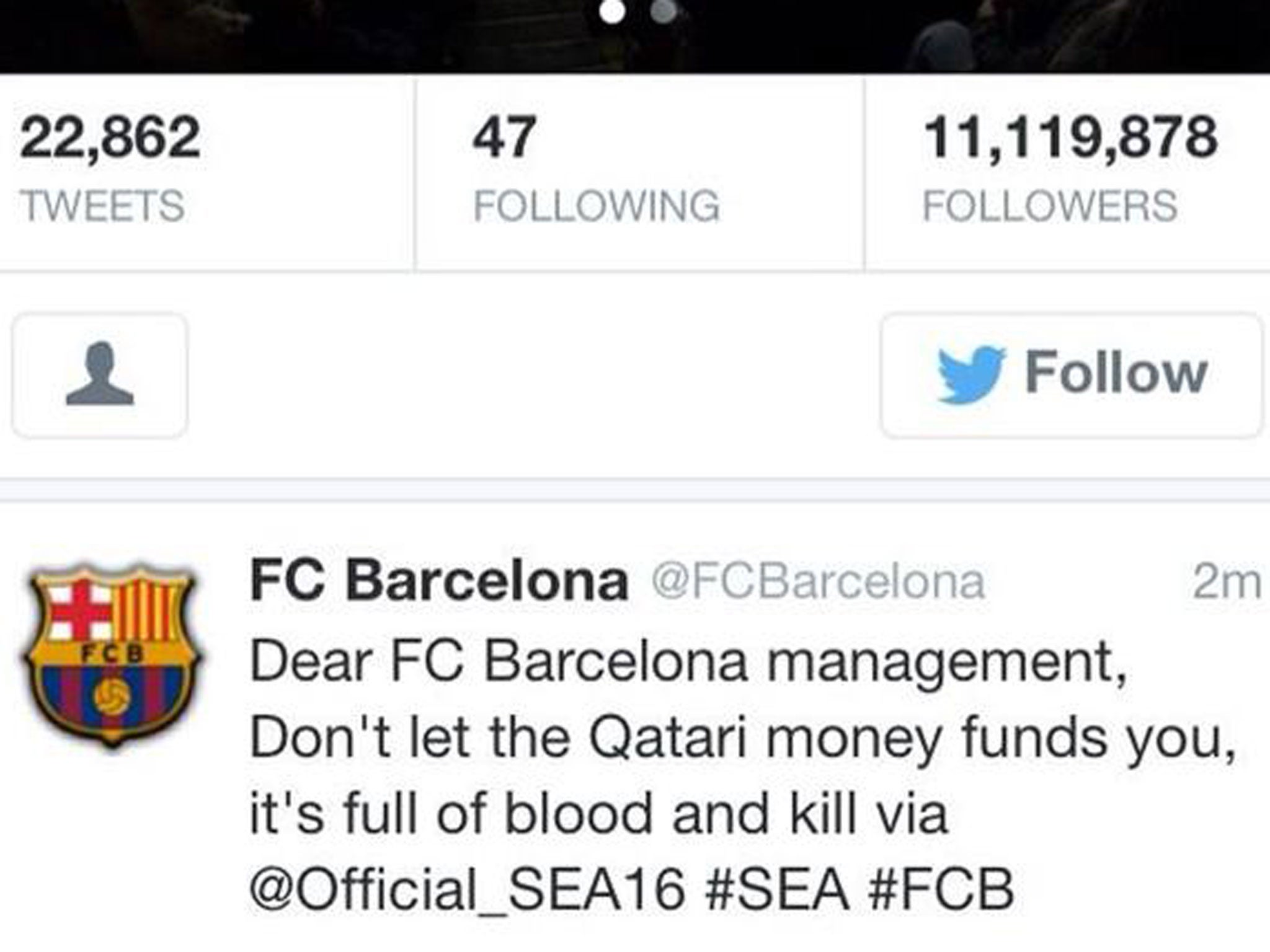Your support helps us to tell the story
From reproductive rights to climate change to Big Tech, The Independent is on the ground when the story is developing. Whether it's investigating the financials of Elon Musk's pro-Trump PAC or producing our latest documentary, 'The A Word', which shines a light on the American women fighting for reproductive rights, we know how important it is to parse out the facts from the messaging.
At such a critical moment in US history, we need reporters on the ground. Your donation allows us to keep sending journalists to speak to both sides of the story.
The Independent is trusted by Americans across the entire political spectrum. And unlike many other quality news outlets, we choose not to lock Americans out of our reporting and analysis with paywalls. We believe quality journalism should be available to everyone, paid for by those who can afford it.
Your support makes all the difference.After Barcelona's 2-0 Champions League victory over Manchester City last night, the club's official Twitter accounts were hacked by activists claiming to be the 'Syrian Electronic Army (SEA)', a collection of computer hackers who support the government of Syrian President Bashar al-Assad.
The messages posted by the notorious hackers criticised the club's links with Qatar - a nation in the same Arabic region as Syria, who are in the midst of civil war. Barca are currently sponsored by Qatar Airways.
The recurring post tweeted read: "Dear FC Barcelona management, don't let the Qatari money funds you, it's full of blood and kill" and contained a link to the page of the Syrian Electronic Army.
The message stayed on their three Twitter feeds (in English, Catalan and Castilian) for a full 20 minutes before it was deleted. The cunning hacker then had the final say by leaving the message: "Special hi to Real Madrid".
Past victims of the SEA have included The Guardian, ITV, The Telegraph, the Washington Post, Viber, Skype, PayPal, Thomson Reuters, CNN and most recently Forbes.

Join our commenting forum
Join thought-provoking conversations, follow other Independent readers and see their replies
0Comments